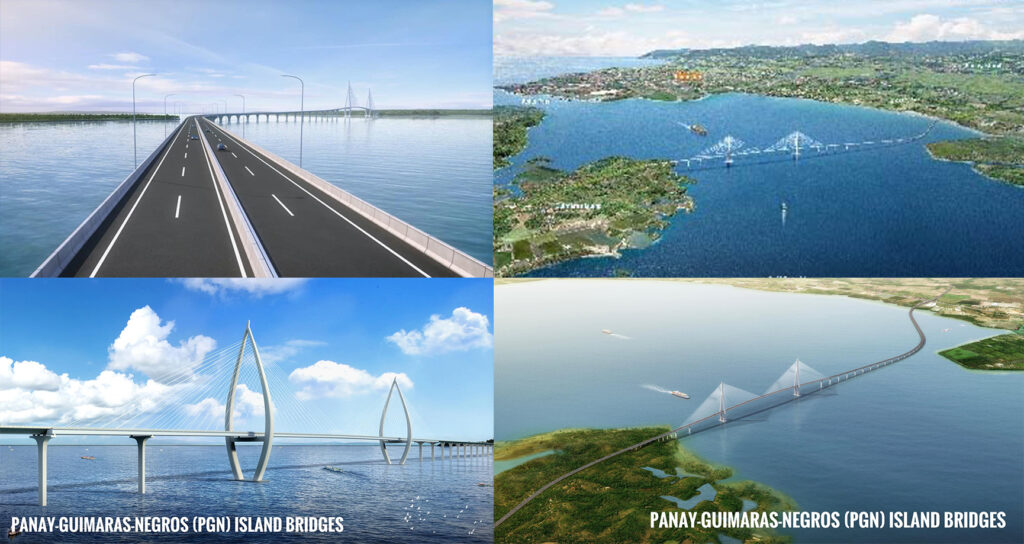
Manila, Philippines – The multibillion-peso Panay–Guimaras–Negros (PGN) Bridge – dubbed by environmentalists as a “dolphin-killer” project – has been suspended after South Korea stopped a 700-billion won (₱28.7 billion) loan over “potential for corruption.” Environmental groups welcomed the move but reiterated calls to permanently cancel the project to protect the 10-13 last remaining Irrawaddy dolphins from extinction.
The Philippine Department of Finance (DOF) has since denied the existence of the loan but pledged transparency and accountability in all government transactions. The PGN Bridge is among several infrastructure projects affected by the suspension, including modular bridges planned nationwide.
The suspension comes as the Philippines faces heightened public scrutiny over misuse of public funds. Ongoing Senate investigations have exposed alleged corruption in major infrastructure and health spending, including the PhilHealth fund controversy and the recent flood control ghost projects. During Supreme Court oral arguments in February 2025, Justice Amy Lazaro-Javier questioned why PhilHealth funds were tapped for the PGN Bridge despite the project already being backed by a ₱174.49 billion loan from Korea’s Export-Import Bank. Solicitor General Menardo Guevarra admitted the money had been diverted by Congress to the National Treasury under “unprogrammed appropriations,” raising the question: where did the loaned funds go?
“Corruption is not just about money being lost—it has real consequences for people and the planet,” said Trixie Concepcion, Regional Director of Earth Island Institute Asia Pacific. “Public health funds should never be at risk just to bankroll megaprojects that displace communities and destroy irreplaceable ecosystems. The suspension of this loan is an opportunity to end the PGN Bridge project permanently and protect the Panay-Guimaras Strait as a critical habitat.”
Environmental advocates warn that even with the loan suspension, the project could still push through if it secures funding elsewhere. The Guimaras Strait—connecting Panay, Guimaras, and Negros—is an Important Marine Mammal Area (IMMA) and home to the country’s last remaining population of Irrawaddy dolphins, with only an estimated 10-13 individuals left. Construction activities such as pile driving, dredging, and heavy vessel traffic could push this population to extinction while degrading mangroves, coral reefs, and seagrass beds that sustain fisheries producing around 50,000 metric tons annually.
Earth Island Institute Asia Pacific is urging the Philippine government to permanently cancel the PGN Bridge project and halt any search for alternative funding. The group stressed that suspending the project on political grounds is not enough — it must be rejected on environmental and scientific grounds as well.
The group calls for the immediate declaration of the Guimaras Strait as a Critical Habitat to legally protect its unique marine biodiversity, including the critically endangered Irrawaddy dolphins, dugongs, sea turtles, and the Philippine Duck. They also emphasize the need for stronger science-based fisheries management, restoration of mangroves and seagrass beds, and sustained livelihood support for fisherfolk who depend on the strait’s resources.
“The suspension of the PGN Bridge should not just be seen as a delay,” Concepcion stressed. “It must be the turning point where the government abandons destructive projects and prioritizes habitat protection, climate resilience, and community-led conservation. True development means safeguarding ecosystems that feed people and sustain future generations.”
###########
———————–The article provided is authorized for use, and represents solely the author’s personal opinions. Please contact us in the event of any potential infringement.



